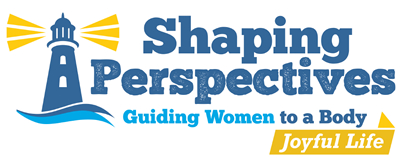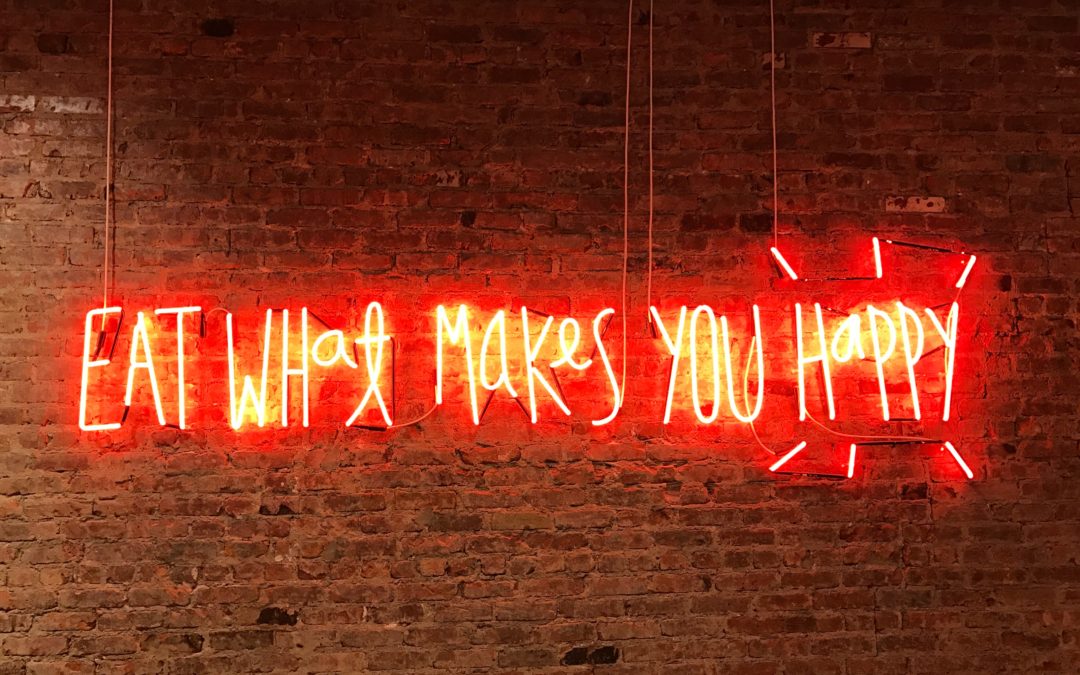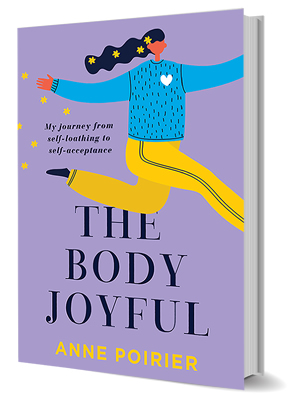When I mentioned to a neighbor the other day that I was a Certified Intuitive Eating Coach, her eyes lit up a bit. She responded, “Oh yeah? I just started hearing about that all over. It sounds to me like it’s just an eating free-for-all. I heard that you just ask yourself what you want to eat and then you eat it. If I did that, I would never stop eating ice cream! Can you tell me more about it?”
“That’s not quite it,” I told her gently and started to explain.
What is intuitive eating?
“In a nutshell, Intuitive Eating is a personal process of listening closely to your body’s physiological needs and then directly responding to them. For instance, are you hungry right now?”
She nodded.
“How can you tell?” I asked
“My stomach feels empty and I’m feeling a little light-headed”
“Great,” I said, “that’s the first step…noticing and becoming aware of what your body feels like when you are hungry. With intuitive eating, we then begin to ask questions about what our bodies and minds feel like eating, we ask our bodies what they need.” I continued, “I might ask myself questions like:
- Am I hungry for a meal or a snack? (How hungry am I, what are my plans for later.)
- What might be the next opportunity I have to eat?
- Do I want something hot or cold?
- Crunchy or soft?
- Sweet or savory?”
By asking myself these questions, I narrow down my choice…and then I go about ordering or making what I’m going to eat, and I proceed to eat it consciously and mindfully. Tasting and enjoying every bite, until my body feels full and satisfied. In other words, I am eating intuitively in response to what my body is telling me.”
She was getting it.
Listen to your body.
“Our bodies give us subtle and sometimes not-so-subtle cues, in regard to hunger, fullness, satisfaction and physiological compatibility. Intuitive eating is just the process of learning to trust and respect one’s body, even when it tells us when something doesn’t agree with us.”
This conversation is not the first I have had since becoming an intuitive eating coach: that your body is smart, your job via intuitive eating is to just listen and feel it.
One of the biggest misconceptions around intuitive eating is that it means eating whatever, whenever. I thought so too at first until I started to tune in deeper to what my body and mind were really telling me.
For example, eating that pint of Ben and Jerry’s ice cream left me feeling sick to my stomach for hours and mad at myself for days.
Yet when I scooped out a cup of that same Ben and Jerry’s after I started my intuitive eating journey, I noticed that I felt fine physically (it didn’t make me feel sick,) and I had given myself full permission to eat it.
I began to really become aware of what foods left me feeling good, focused, and energetic, and what foods left me feeling nauseous, bloated, gassy, tired and lacking focus. That is intuitive eating.
What is NOT Intuitive Eating?
It’s not a diet (click here to learn about the real cost of dieting) or food plan. Period. You don’t fail, you only learn. Therefore there is no “blowing it”; instead you embark on a journey of self-discovery and connection to the needs of your body.
There is no counting calories, carbs, points, or macronutrients. Perfectionist Patty can relax!
Ultimately, you are the expert of your body.
Only you know what hunger, fullness, and satisfaction feels like in your own body.
Only you know your thoughts, feelings, and experiences.
Intuitive Eating is a personalized tool you experiment with and learn how to use.
As stated on the Intuitive Eating Website: Intuitive Eating is an evidenced-based, mind-body health approach, comprised of 10 Principles and created by two dietitians, Evelyn Tribole and Elyse Resch in 1995.
Check-in for future blog posts where we dive deeper into these 10 principles.
Are you ready to talk more about eating intuitively? Click here for a free Body Joyful Breakthrough Session.
If you enjoyed this article, you won’t want to miss these either:
Benefits to a Playful Approach to Exercise
Journaling to Boost Your Mood
9 Steps to Ultimate Self-Acceptance


